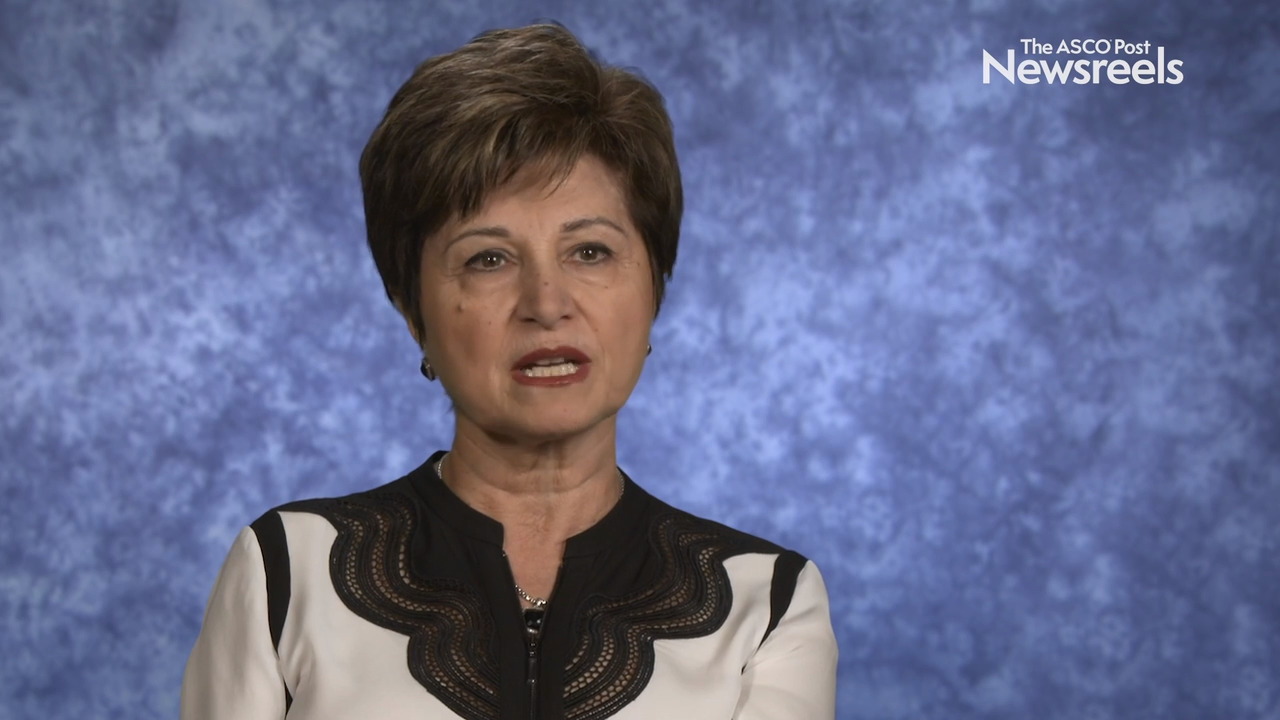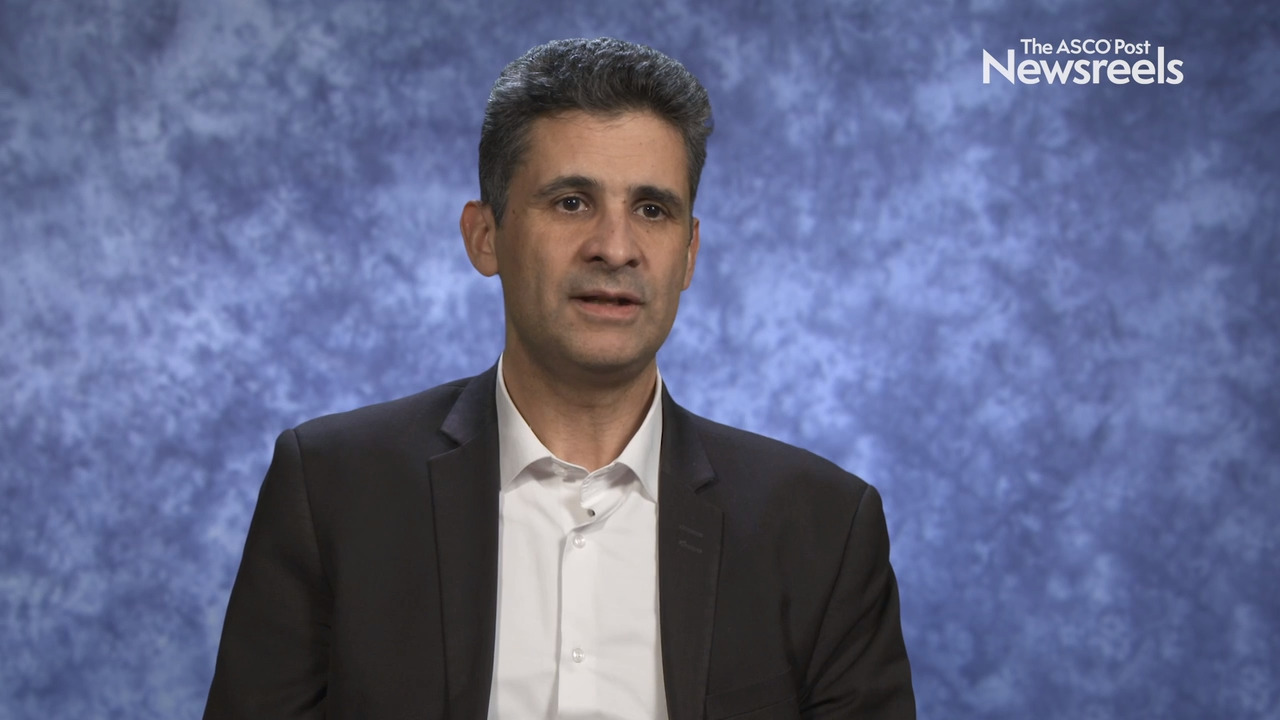David P. Dearnaley, MD, on Prostate Cancer: Conventional vs Hypofractionated High-Dose Radiotherapy
2020 Genitourinary Cancers Symposium
David P. Dearnaley, MD, of The Institute of Cancer Research and Royal Marsden NHS Foundation Trust, discusses 8-year outcomes of the phase III CHHiP trial, which showed that modest hypofractionation is noninferior to conventional fractionation in localized prostate cancer, with no increase in side effects. Disease control was also reported in patients older than age 75 (Abstract 325).
The ASCO Post Staff
Nicholas D. James, PhD, MBBS, of The Institute of Cancer Research in London, discusses results from a phase I/II feasibility study that showed the combination of cetuximab, chemoradiation, fluorouracil, and mitomycin yields high bladder cancer control rates with acceptable toxicity and quality of life, meriting further evaluation in a randomized trial (Abstract 491).
The ASCO Post Staff
Thomas Powles, MD, PhD, of Queen Mary University of London, summarizes two papers on metastatic renal cell carcinoma for which he was the discussant: nivolumab in combination with stereotactic body radiotherapy in pretreated patients, and combining dual immune checkpoint inhibition with stereotactic radiation (Abstracts 613 & 614).
The ASCO Post Staff
Nicholas D. James, PhD, MBBS, of The Institute of Cancer Research in London, discusses the health economics of adding abiraterone to first-line, long-term hormone therapy in prostate cancer, and what it means for long-term survival, quality-adjusted survival, and cost-effectiveness (Abstract 204).
The ASCO Post Staff
Maha Hussain, MD, of the Robert H. Lurie Comprehensive Cancer Center of Northwestern University, discusses the first phase III clinical trial to demonstrate the feasibility of tissue-based genomic testing to preselect men with metastatic castration-resistant prostate cancer for targeted treatment and the superiority of the PARP inhibitor olaparib compared to enzalutamide or abiraterone (Abstract 195).
The ASCO Post Staff
Karim Fizazi, MD, PhD, of the Institut Gustave Roussy, discusses results from the CARD study, which showed that cabazitaxel improved pain, time to pain progression, and symptomatic skeletal events, as well as quality of life in patients with metastatic castration-resistant prostate cancer. The findings support the use of this agent as a standard of care (Abstract 16).





